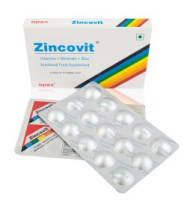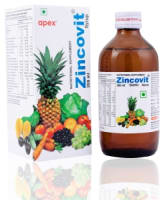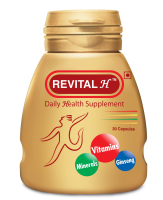
Interaction with alcohol is unknown. Please consult your doctor.

WEIGH RISKS VS BENEFITS
Intasol Infusion may be unsafe to use during pregnancy.Animal studies have shown adverse effects on the foetus, however, there are limited human studies. The benefits from use in pregnant women may be acceptable despite the risk. Please consult your doctor.

No information is available on the use of Intasol Infusion during lactation. Please consult your doctor.

Not relevant, as Intasol Infusion is intended for use in hospitalised patients.

CAUTION
Intasol Infusion should be used with caution in patients with kidney disease. Dose adjustment of Intasol Infusion may be needed. Please consult your doctor.

Intasol Infusion is probably safe to use in patients with liver disease. Limited data available suggests that dose adjustment of Intasol Infusion may not be needed in these patients. Please consult your doctor.
Uses of Sodium Chloride
Sodium Chloride is used in short term fluid replacement after trauma, dehydration and irrigation solution for eye/nose.
How to use Sodium Chloride
Your doctor or nurse will give you this medicine. Kindly do not self-administer.
How Intasol Infusion works
Sodium Chloride works by replacing fluid loss.
Common Volume overload.
Expert advice for Sodium Chloride
Your electrolyte levels in blood and other parameters (such as blood pressure etc.) will be monitored regularly as you receive intravenous sodium chloride.
Tell your doctor if you have disorders of the kidneys, lungs, problems of the heart related to impaired pumping of blood (congestive cardiac disorders), high blood pressure or pregnancy-related blood pressure problems (pre-eclampsia), fluid retention problems or swelling in hands, ankles or feet.
Seek immediate medical attention if you experience any unwanted swelling, trouble in breathing, muscle cramps, and/or weakness, fits, nausea, vomiting or stomach pain.
Tell your doctor if you are or planning to become pregnant or are breastfeeding.
Do not take if you are allergic to sodium chloride or any of its ingredients.
Do not give to patients with excess fluid or sodium in the space outside body cells (extracellular hyper hydration or hypervolemia).
Do not give to patients with abnormally low levels of sodium or chloride in blood (hyponatremia, hypochloremia), fluid and sodium retention problems or edema (swelling).
Do not give to patients with congestive heart failure (heart failure resulting in fluid build-up in lungs and other body tissues), severe liver and kidney functioning problems.
Q. Is sodium chloride soluble in water?
Sodium chloride is soluble in water
Q. Is Sodium Chloride acidic or basic?
Sodium Chloride is a neutral salt (neither acidic nor basic)
Q. Is Sodium Chloride ionic or covalent?
Sodium Chloride is an example of ionic bonding, where the molecule is formed by ionization of participating atoms and attraction between them
Q. Does Sodium Chloride expire?
Normally, Sodium Chloride does not have an expiry date if stored under appropriate conditions
Q. Is Sodium Chloride polar?
Sodium Chloride is ionic, which is considered highly polar
Q. Is Sodium Chloride an antioxidant?
Sodium Chloride does not possess antioxidant property.
Uses of Sodium Lactate
Sodium Lactate is used in short term fluid replacement after trauma.
How to use Sodium Lactate
Your doctor or nurse will give you this medicine. Kindly do not self-administer.
How Intasol Infusion works
Sodium Lactate works by replacing fluid loss.
Common Volume overload.
Expert advice for Sodium Lactate
Do not use sodium lactate for the treatment of lactic acidosis (characterized by low pH in body tissues and blood) or severe metabolic acidosis (condition when the body produces excessive quantities of acid or when the kidneys are not removing enough acid from the body) or for treatment of severe potassium deficiency.
Seek immediate medical attention in case of fluid overloading resulting in electrolyte imbalances, overhydration, congested states, pulmonary edema or acid-base imbalance.
Exercise caution in patients with alkalosis or at risk for alkalosis (an excessively alkaline condition of the body fluids or tissues, which may cause weakness or cramp), patients with severe kidney impairment, hypervolemia (fluid overload), overhydration, or conditions that may cause sodium retention, fluid overload, or edema.
Tell your doctor if you are or planning to become pregnant or are breastfeeding.
Do not take if patient is allergic to sodium lactate or any of its ingredients.
Do not take if patients with hypervolemia, severe kidney insufficiency, uncompensated heart failure, hyperkalemia (high serum potassium concentration), hypercalcaemia ((high serum calcium concentration), metabolic alkalosis, ascitic cirrhosis (accumulation of fluid in the abdominal cavity).
Do not take patients with conditions associated with increased lactate levels (hyperlactatemia) including lactic acidosis, or impaired lactate utilization, such as severe liver insufficiency and patients taking concomitant digitalis therapy.
Q. Is Sodium Lactate safe?
Sodium Lactate is safe if used at prescribed doses for the prescribed duration as advised by your doctor.
Uses of Potassium Chloride
Potassium Chloride is used in the treatment of potassium deficiency.
How to use Potassium Chloride
Your doctor or nurse will give you this medicine. Kindly do not self-administer.
How Intasol Infusion works
Potassium Chloride provides essential nutrients.
Common Nausea, Numbness, Tingling sensation, Allergic reaction, Cardiac toxicity, Chest pain, Anxiety, Confusion, Diarrhoea, Altered heart rate, Black and bloody stools, Muscle weakness, Muscle paralysiss, Stomach pain, Stomach swelling, Vomiting, Weakness.
Expert advice for Potassium Chloride
The concentration of intravenous infusion solution should not exceed 3.2 g (43 mmol)/l.Do not take potassium chloride if you have kidney, heart problems, high blood pressure or high blood potassium level.Avoid using potassium chloride, if you have Addison disease (adrenal gland disorder); severe tissue injury such as burn; severe dehydration, blockage of stomach or intestine or diarrhea from long time.
Q. Is potassium chloride a strong electrolyte?
Potassium chloride is a strong electrolyte
Q. Is potassium chloride safe?
Potassium chloride is safe if used as recommended
Q. Is potassium chloride a base?
Potassium chloride is not a base or acid, it is neutral with a PH value of 7.
Uses of Calcium Chloride
Calcium Chloride is used in the treatment of nutritional deficiencies.
How to use Calcium Chloride
Your doctor or nurse will give you this medicine. Kindly do not self-administer.
How Intasol Infusion works
Calcium Chloride provides essential nutrients.
Common Skin redness, Increased calcium level in blood, Decreased magnesium level in blood, Decreased phosphate level in blood, Decreased blood pressure, Tissue necrosis, Dryness in mouth, Nausea.


 Intasol Infusion
Intasol Infusion  Bookmark
Bookmark





















